Treasury Secretary Bessent announces tariff relief on coffee, fruits
We saw rates increasing yesterday, with the 10-year rate rising 2.5 basis points to 4.79% and the 30-year rate increasing two basis points to 4.97%. The 30-year minus 3-month spread has increased by another two to 64 basis points.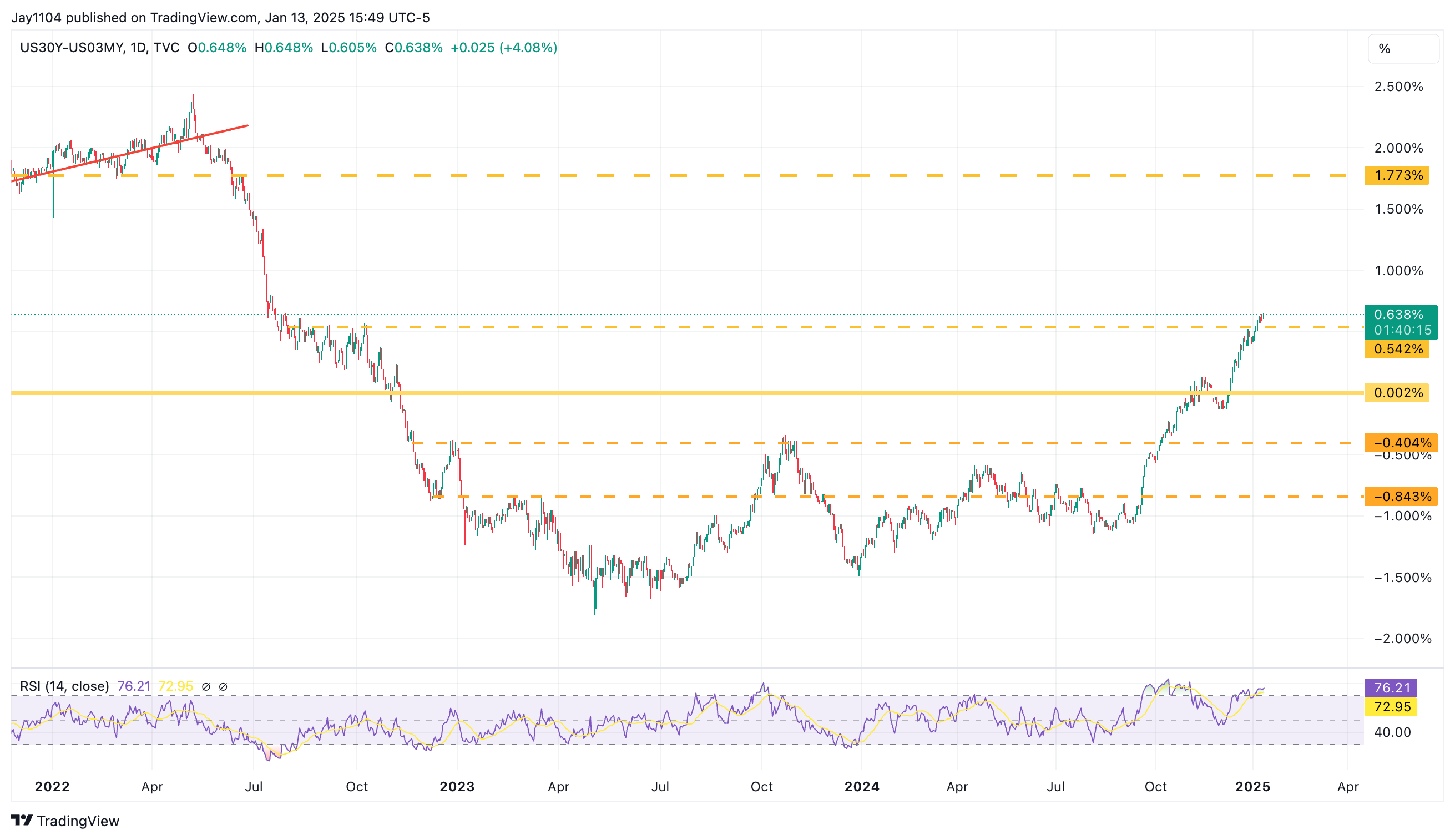
We’ll get the PPI report today, which is expected to be another hot reading. Analysts are forecasting a headline increase of 0.4%, consistent with last month, while the core reading is expected to rise to 0.3% from 0.2%. The headline is projected at 3.5% year-on-year, and the core will accelerate to 3.8% from 3.4%.
It’s also worth noting that expectations for the CPI, due on Wednesday, have risen. Initially forecasted at 0.3% month-over-month, they have shifted to 0.4%, aligning with signals from the swaps market. While these expectations could still change, most analysts anticipate a 0.4% month-over-month reading.
This remains a market driven by inflation concerns, and for good reason.
Oil prices are up 3% yesterday, reaching around $79 per barrel and appearing to break out.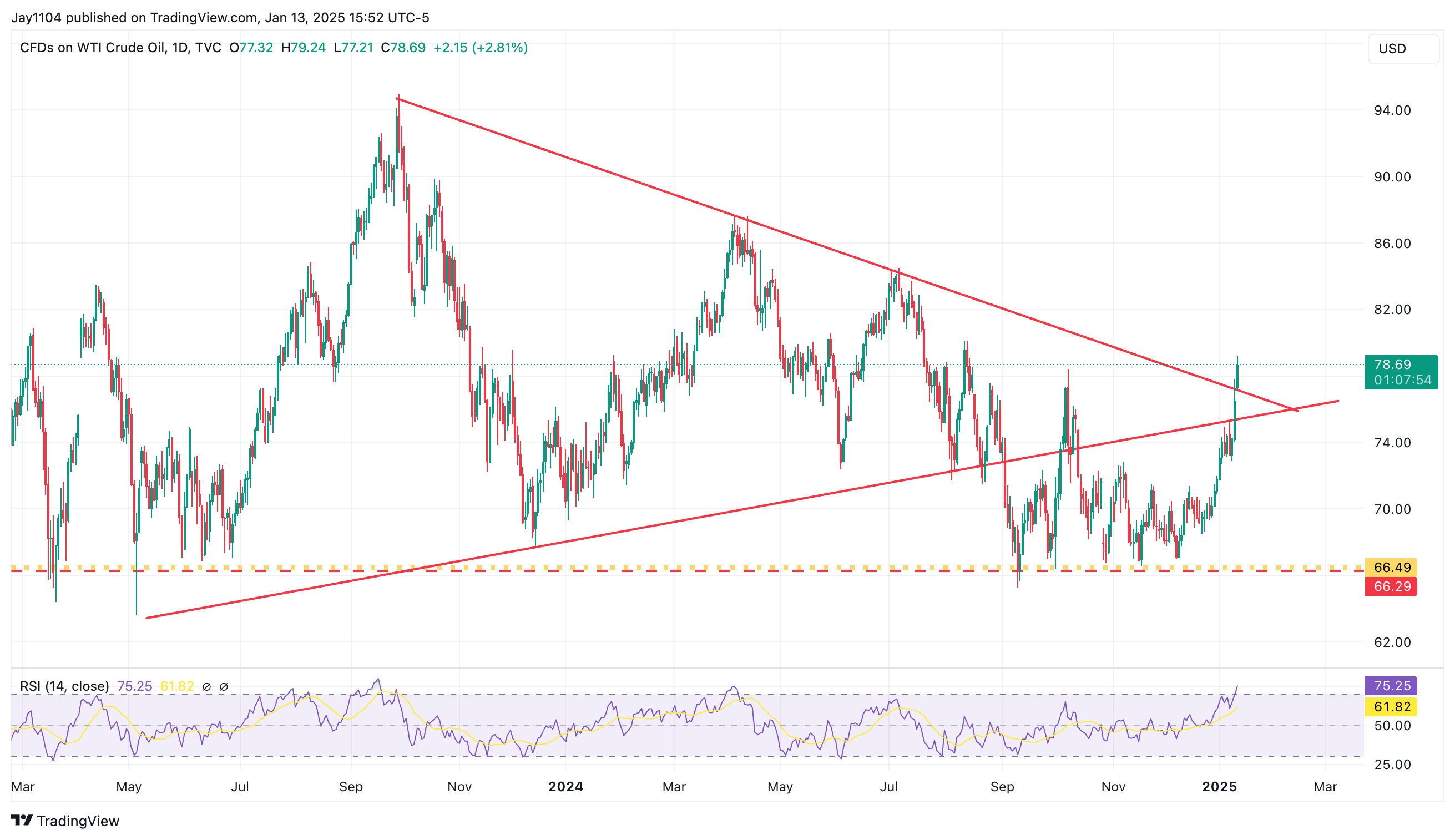
RBOB gasoline is also climbing, rising about 1.25%, nearing a breakout of around $2.10.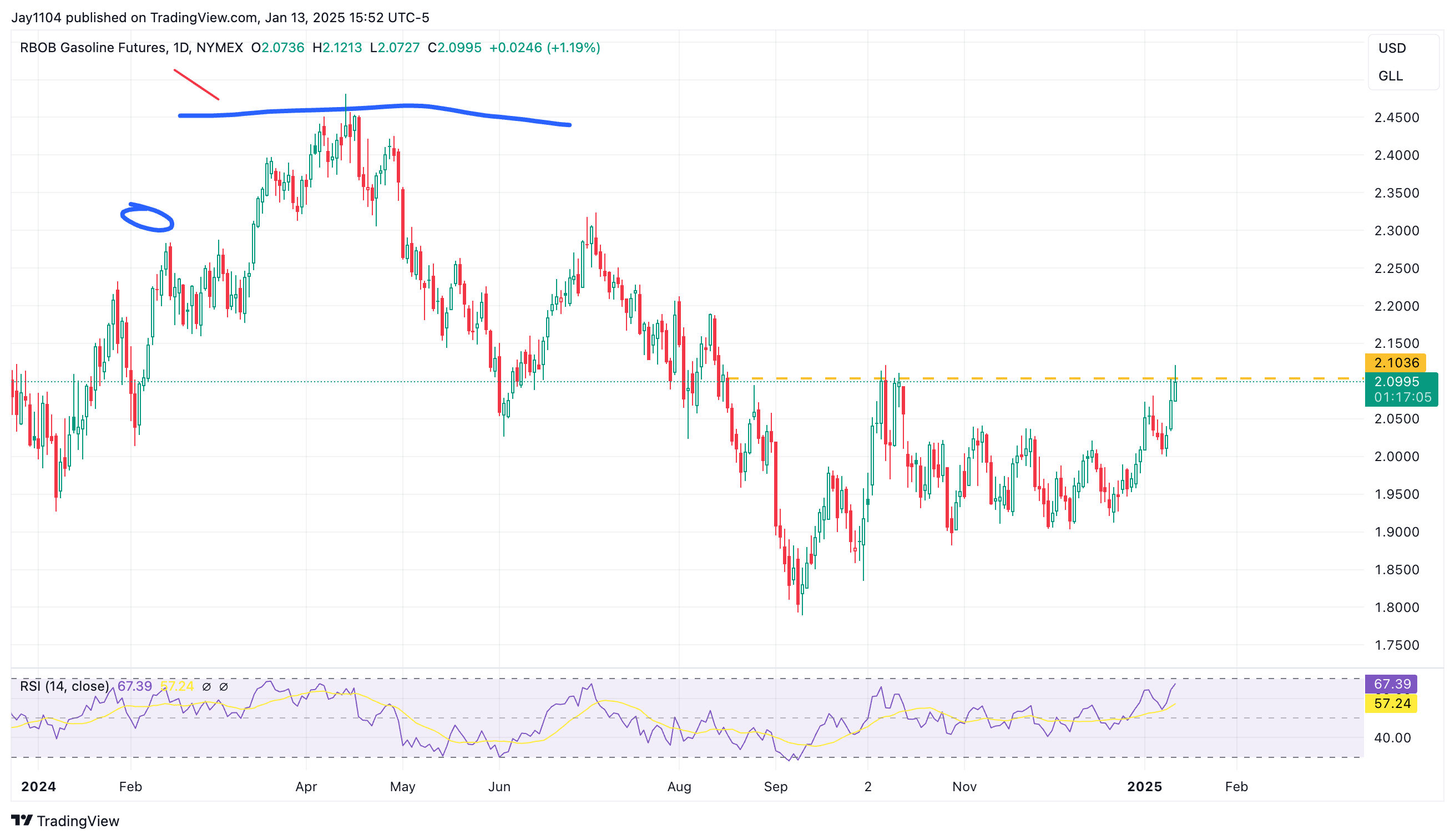
Rising energy costs are unlikely to ease inflation fears, contributing to higher two-year inflation swaps, up more than four basis points yesterday to 2.70%. This level takes us back to the highs seen in mid-November.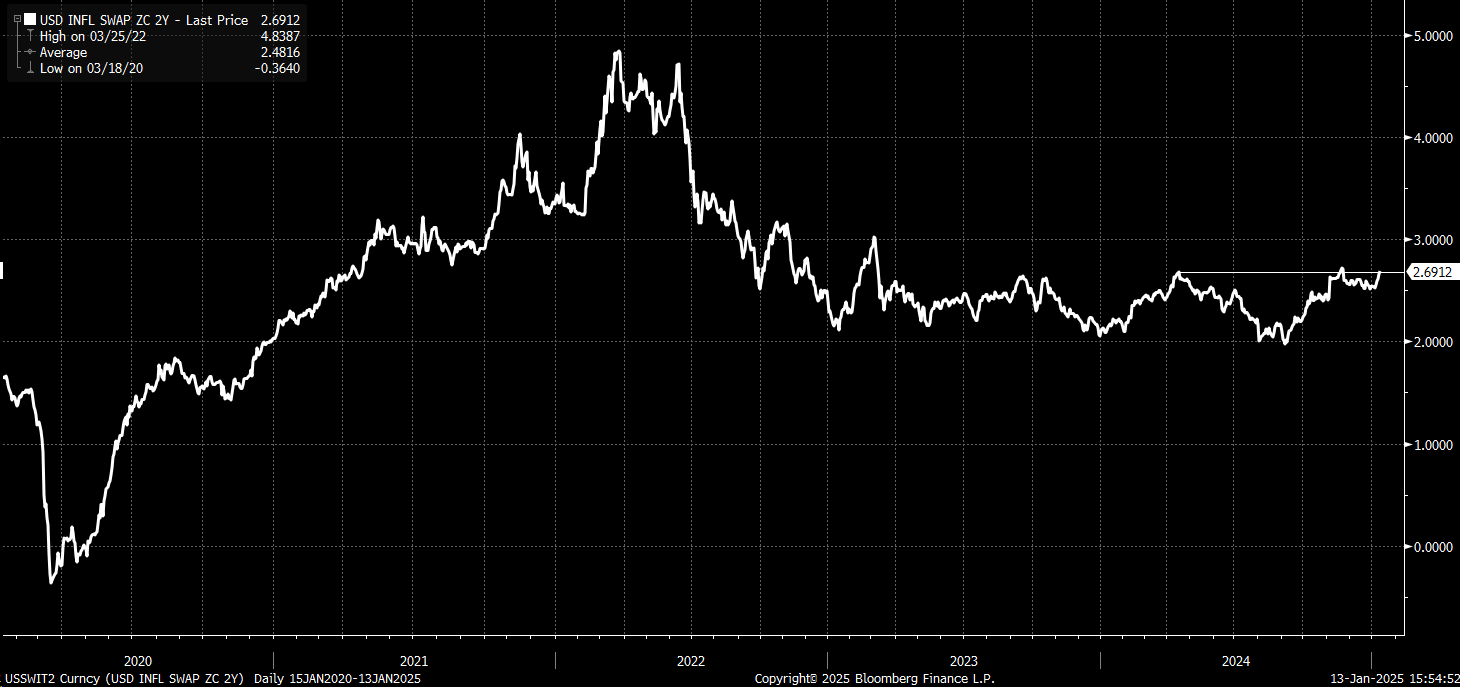
The five-year swaps are also up four basis points to 2.61%, reaching the upper end of their one-year range and nearing a breakout.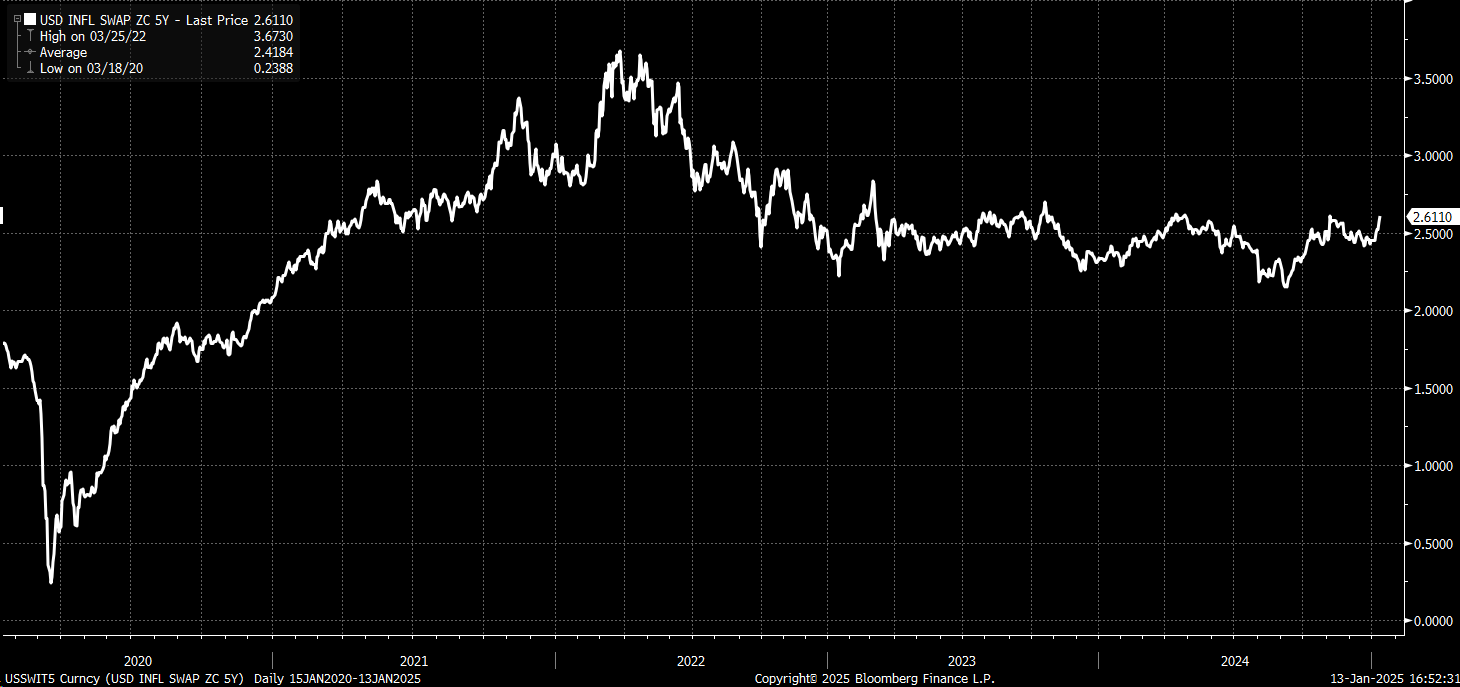
Despite some commentary on news networks suggesting rates aren’t rising due to inflation worries, ignoring the data is difficult. Ten-year breakevens rose another two basis points yesterday to 2.47%, climbing from 2.03 on September 10 to their highest level since October 2023. For context, the last time we saw levels this high was in March 2023.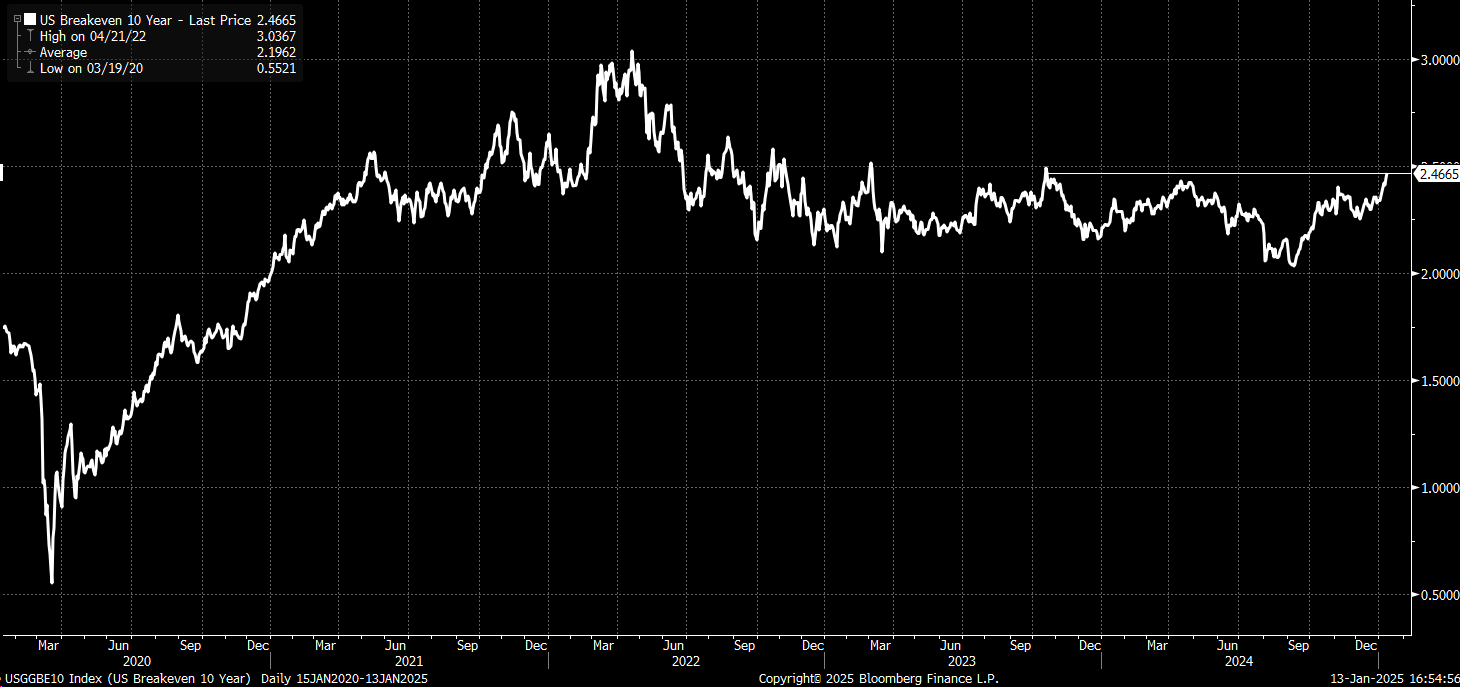
Inflation expectations and rising term premiums appear to be the primary drivers of higher rates. The term premium on the 10-year has risen to 65 basis points, one of the highest levels since 2015. Together, these factors indicate the market’s demand for higher interest rates to compensate for inflation and long-term risk.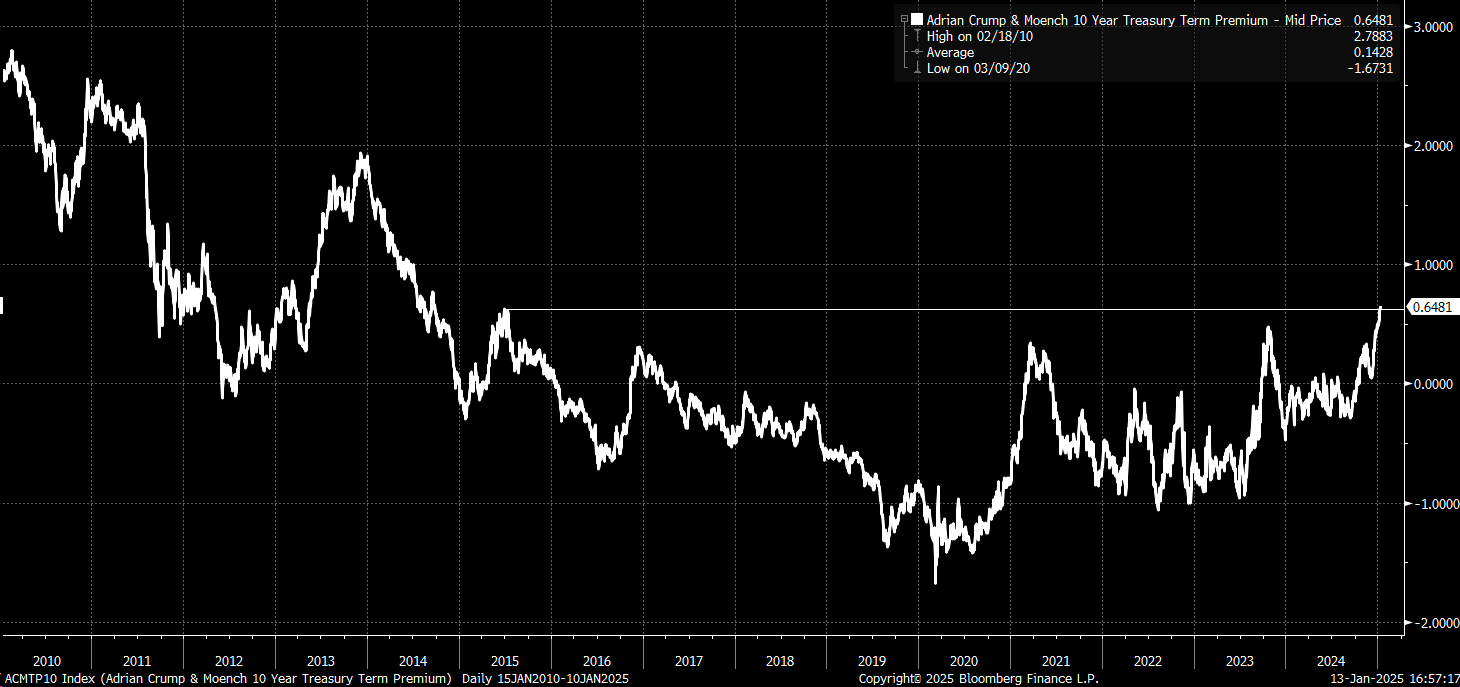
today’s PPI and Wednesday’s CPI reports will be critical. Short-term inflation expectations are also climbing, with December and January swaps at 2.92%, February at 2.75%, and March at 2.60%, and all up from Friday.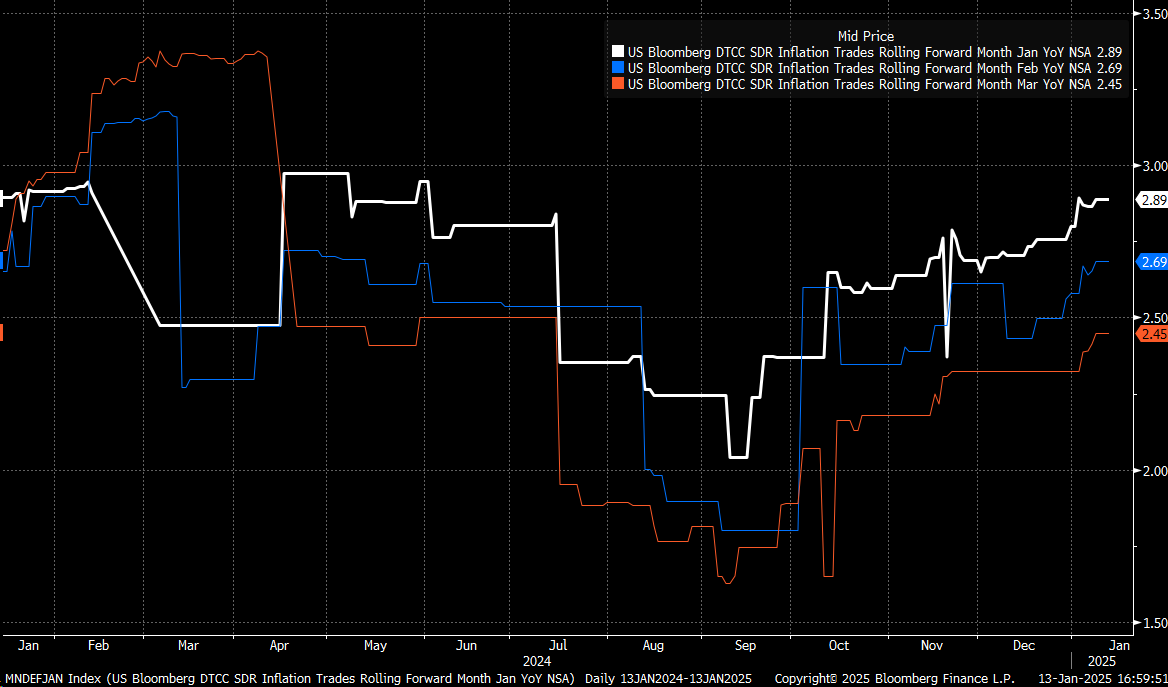
Since mid-2022, the Fed has benefited from relatively low oil prices. However, oil has consistently bounced off the $65-$70 range, serving as a floor. Oil prices are now breaking multiple downtrends, signaling a higher potential move despite minor pullback risks indicated by technical factors like RSI and Bollinger Bands.
Inflation concerns and higher-term premiums seem to drive rising rates.
